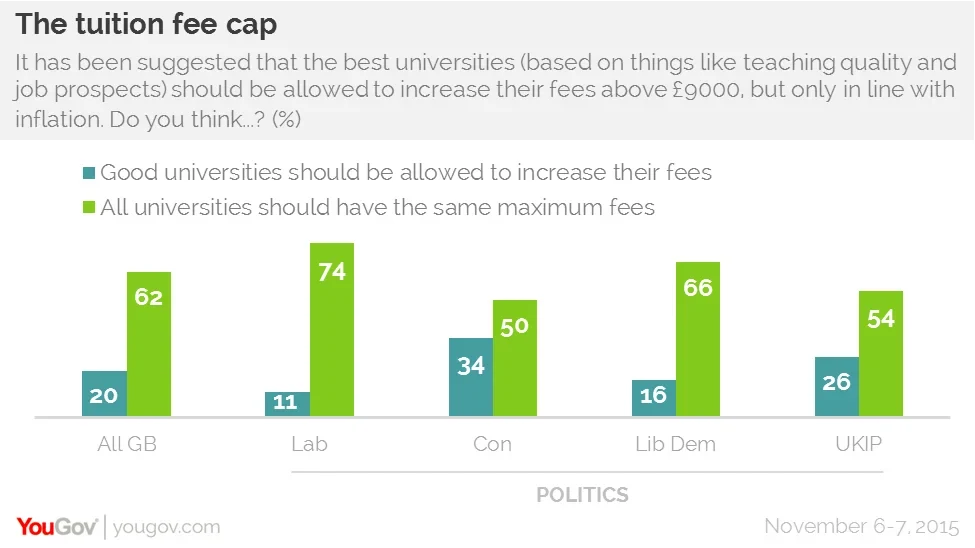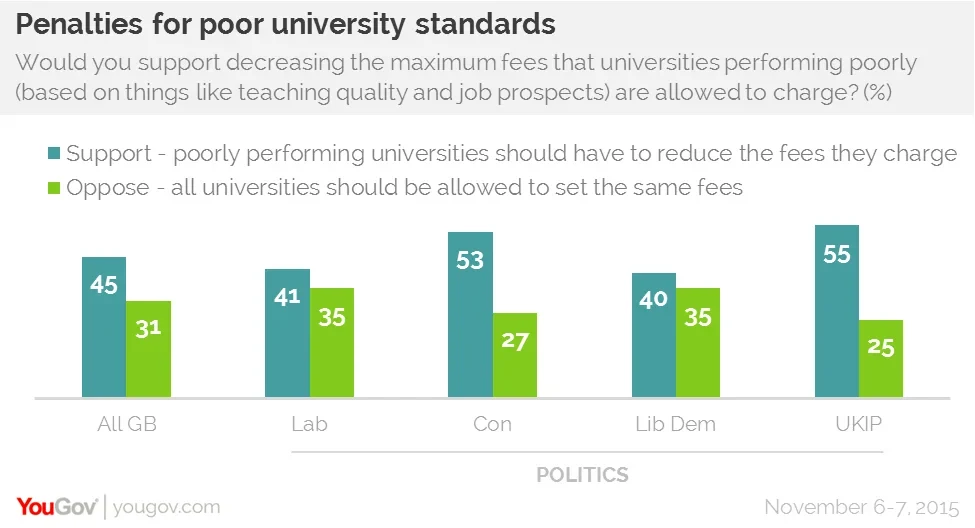Most people oppose allowing outstanding universities to increase their tuition fees above the current £9,000 cap – but there is more support for penalising those that perform poorly
Universities Minister Jo Johnson proposed on Friday that well performing universities in England and Wales should be able to raise tuition fees in line with inflation as an incentive to get back to a focus on quality teaching, which he sees now as the “poor cousin” to research. The plans are contained in a government consultation paper which suggests grouping universities by performance measures and permitting them to raise fees at different levels according to their ranking, with universities below the bottom tier facing lower limits on what they can charge. The plan was previously announced in George Osborne's July Budget, which also included measures to replace university maintenance grants for lower income students with loans.
New YouGov research reveals strong opposition to permitting the best universities to increase their fees in line with inflation. 62% of the British public say all universities should have the same maximum fees. Majorities in every demographic group oppose the idea, except for Conservatives. However Conservatives still tend to be in opposition (50% oppose and 34% support).

On the other hand, financial incentivisation is not opposed outright by the public. The other side of Jo Johnson's proposal – to punish poor performance by lowering the amount the worst universities can charge – tends to be supported (45% support, 31% oppose).

One reason penalties tend to be supported is that 48% of the public already see £9,000 fees as bad value for money (only 22% say the potential increased earnings and the education received are worth the money). It's easy to support punishments for poor universities if they are seen as ripping students off, and this is the aspect of the policy that has the potential to resonate with the public.
PA image






